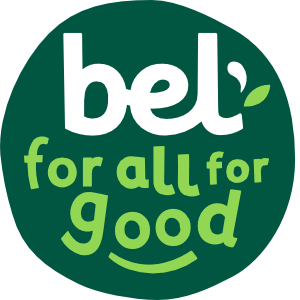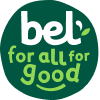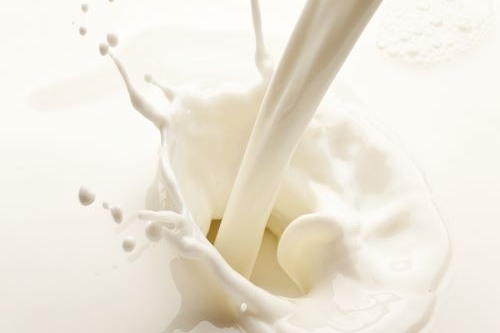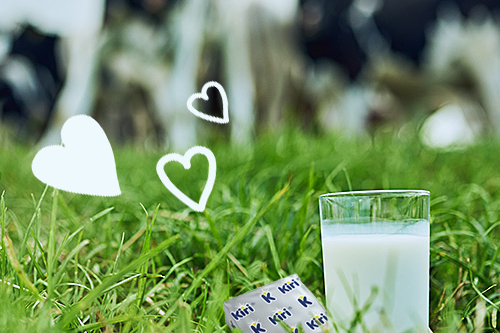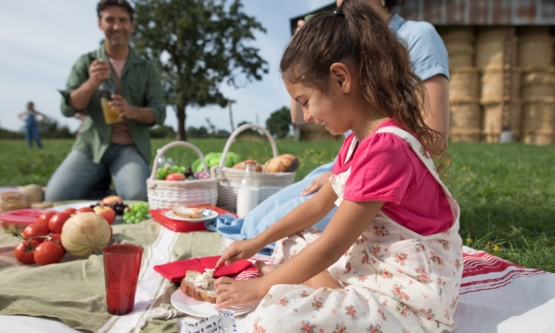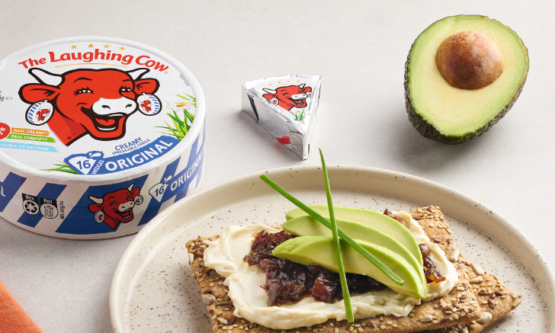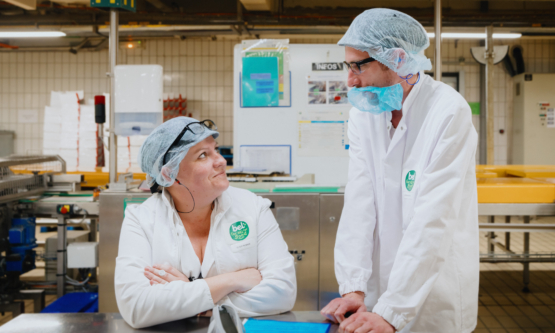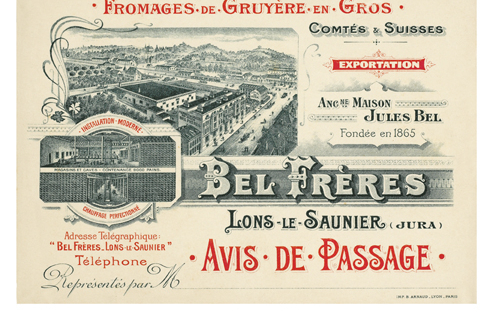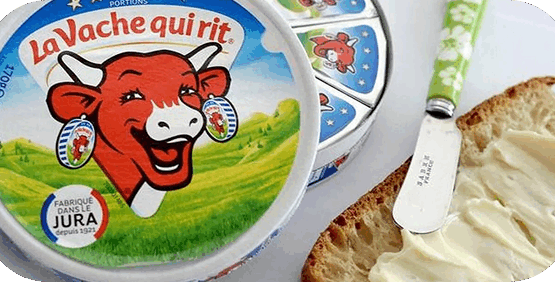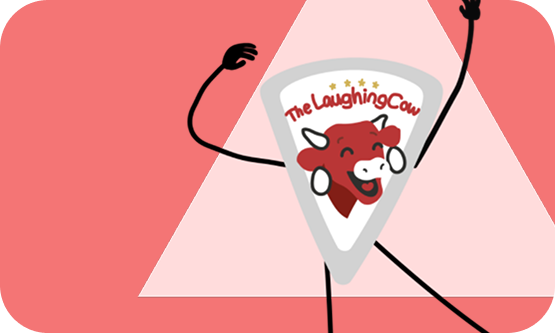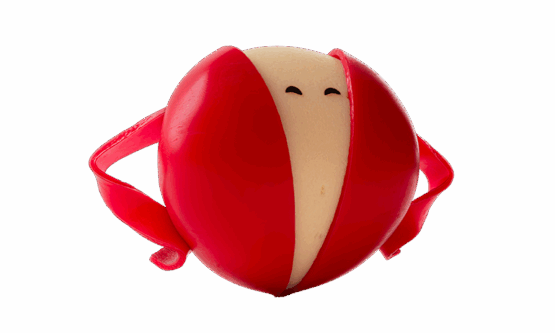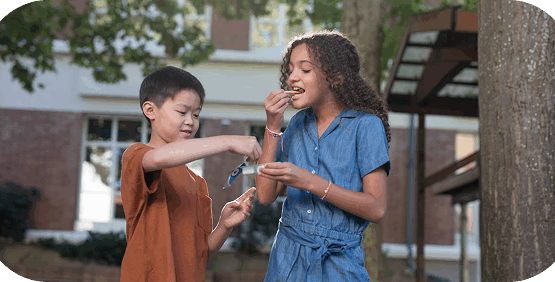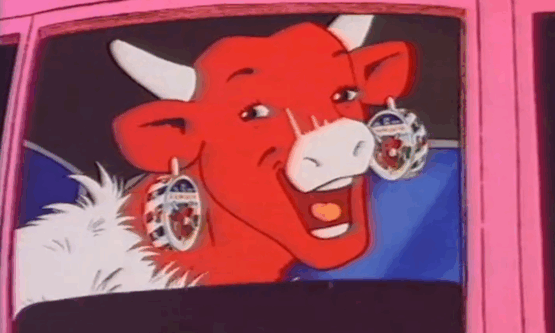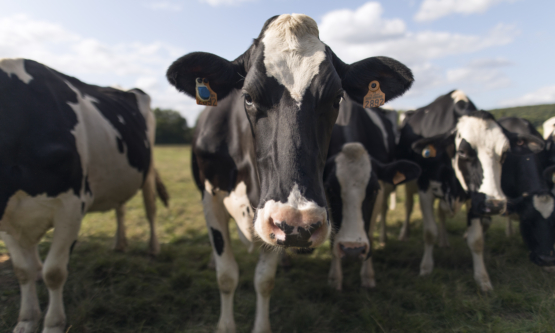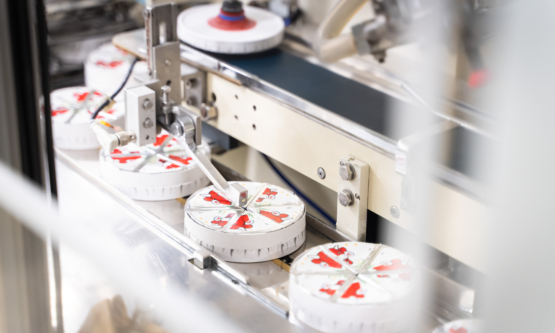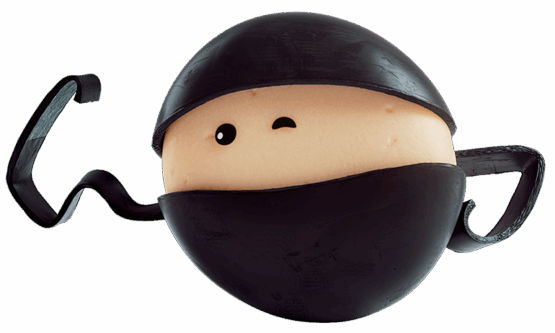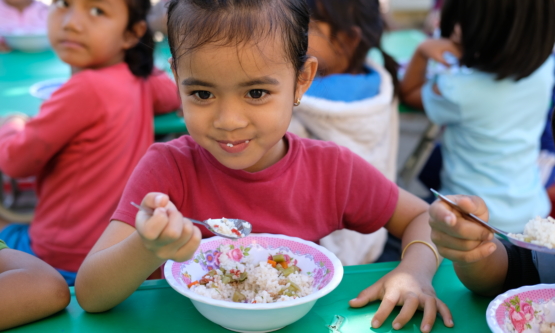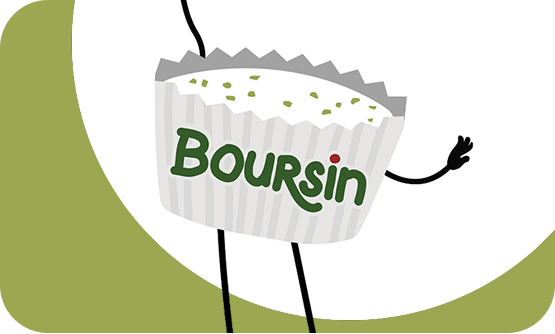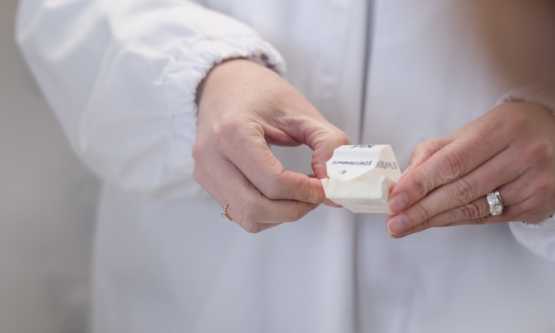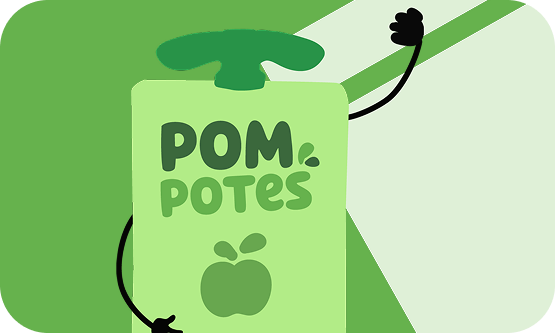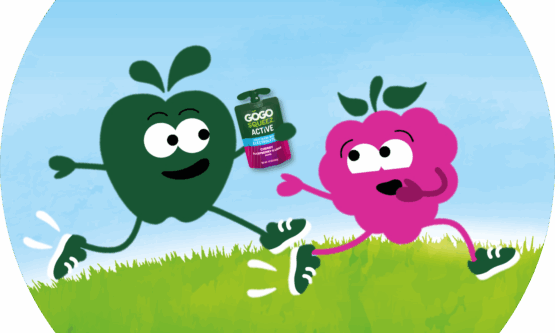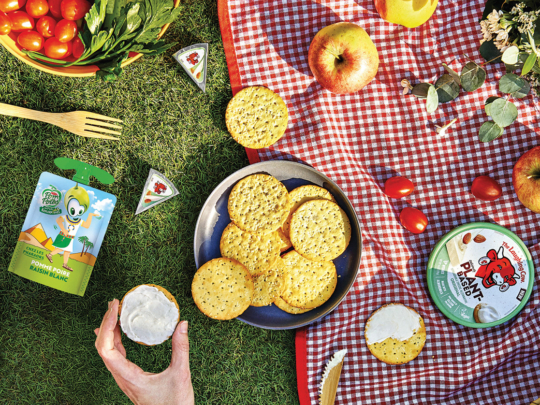
FAQ
FEED YOUR CURIOSITY: HERE ARE THE ANSWERS YOU'RE LOOKING FOR!
What is an additive? Do your cheeses contain any?
Our cheeses are made first and foremost from milk and dairy ingredients. Some, like The Laughing Cow®, Apéricube®, or Kiri®, contain small amounts of additives. These additives play an essential role, for instance, in helping to create a creamy texture and preserve the quality of the cheese. Bel only uses additives that are authorized by current regulations and have been proven safe by national and international public health authorities. We know this is a concern for some of our consumers, so our R&D teams are actively working to gradually reduce the number of additives whenever possible, without compromising on food safety or the taste and texture you love.
Why are many Bel products in individual portions?
The single-serving format offers multiple benefits for our consumers. Beyond being fun and convenient, it also keeps our products perfectly preserved. It's also a smart response to modern challenges like food safety, nutritional balance, and the fight against food waste. Each portion serves as a simple guide, helping everyone consume the right amount for their needs. Mindful of our commitment to sustainable development, Bel considers its environmental footprint a top priority and is continuously working to improve its packaging.
Isn't cheese a bit too high in fat to be healthy?
Actually, nutritionists recommend cheese as part of the 3 to 4 daily servings of dairy products. A typical serving of cheese generally has less than 10g of fat (Source: ANSES, CIQUAL, 2015) and is packed with essential nutrients like protein, calcium, numerous vitamins (Vitamin A, B-group vitamins), minerals (phosphorus), and trace elements (zinc). For example, one wedge of The Laughing Cow® in France contains just 3.2g of fat. That’s less than a small pat of butter! Discover our commitment to healthier eating.
Is cheese a good way to get my calcium?
Absolutely! Milk, dairy products, and cheese are all effective ways to meet your daily calcium needs. That's why health authorities around the world recommend consuming dairy products every day. Depending on the specific recipes and regions, the calcium content in our cheeses varies to meet local needs and processing methods. On average, Bel cheeses contain between 120 and 900 mg of calcium per 100g. Discover our commitment to healthier eating
Are your cheeses high in salt?
At Bel, the nutritional quality of our cheeses is very important to us, which is why we are always improving our recipes. Salt is a key ingredient in the cheesemaking process, as it plays an essential role in food safety, preservation, and taste. Our products have a salt content that is on average with other cheeses, making them perfectly suitable for a balanced diet. Nevertheless, we pay close attention to public health recommendations and are gradually reducing the sodium content of our products, as long as this does not compromise their food safety or flavor. For example, the salt content in The Laughing Cow® has been reduced by 20% since 2000.
.
What is the red wax on Babybel® made of?
The wax we use for the Babybel® coating is a mix of paraffin and microcrystalline waxes, plus a natural colorant. Its "food-grade" quality meets very strict regulatory standards. If you accidentally swallow it, don't panic! It poses no health risk.
How do you guarantee the quality and safety of your products worldwide?
We are responsible for ensuring the quality, traceability, and safety of our products from the very beginning of production right through to consumption, all around the world. Every stage of a product's life cycle undergoes rigorous checks and is fully traceable. Our 30 production sites worldwide all follow the same strict quality and food safety requirements set by the Group.
Where does the name "Bel" come from?
Our story starts in 1865, when Jules set up his Comté cheese aging and trading business in the Jura region of France. In 1904, his son Léon took over the business. After the First World War, the cheese industry was booming, and Léon saw the potential of processed cheese—it was tasty, affordable, and easy to transport and store. In 1922, he founded the Fromageries Bel company. Today, it's led by Antoine Fiévet, who represents the fifth generation of family leadership. If you'd like to learn more about our history, you can read it here
I sometimes see The Laughing Cow® and Apéricube® sold outside the fridge. Is that normal?
Yes, that’s perfectly normal! These products belong to the processed cheese family. Their production involves a high-temperature (UHT) heat treatment, and they are then immediately hot-packed into their sealed packaging, which makes them airtight. Just like a carton of UHT milk, this means you can keep them out of the fridge at a moderate room temperature! However, to best enjoy their taste, we recommend storing them in your refrigerator. Learn more about our commitment to sustainable portions.
I've heard that the E330 additive in The Laughing Cow® is bad for your health. Is this true?
The Laughing Cow® does contain E330, which is more commonly known as citric acid. It occurs naturally in citrus fruits like lemons—which is where it gets its name—and can also be produced for use in food. Its role is to give the cheese its smooth texture. It has been approved by European and global authorities (WHO and FAO).
I heard Babybel® is 98% milk. What's in the other 2%?
That's right. Babybel® is made with 98% milk, plus salt, bacterial cultures, and microbial enzymes—just like most other pressed cheeses.
Where can I find the nutritional information and ingredients for Bel products?
We believe that consumer access to nutritional information is key to enabling a balanced diet. Bel brands worldwide provide this information on their packaging, websites, and through consumer care services dedicated to nutrition questions.
I've heard that The Laughing Cow® is made with substandard cheese or cheese rinds. Is this true?
Absolutely not! Our quality standards are very strict. We only use high-quality ingredients that undergo rigorous testing in our labs. The Laughing Cow® is made from skimmed milk, quality rindless cheeses (such as Cheddar, Gouda, and Emmental), and butter. To achieve its creamy texture, we add milk proteins and melting salts.
The individual portions use a lot of packaging! What about the environmental impact?
Before it becomes waste, our packaging serves several essential functions that, for now, only it can provide. It's crucial for:
•Preserving and protectingour products (from oxidation, contamination, etc.).
•Ensuring safe transport and storage.
•Informing consumerswith details like best-before dates, storage instructions, ingredients, and nutritional information.
To limit our environmental impact, we are committed to the continuous eco-design of our packaging and follow a '5R' strategy (Refuse, Reduce, Reuse, Restore, Recycle) to actively support a circular economy.
Where do you get the milk for your cheese?
Bel collects over a billion liters of milk from around 1,200 partner dairy farmers in 9 main dairy regions (including France, the US, Portugal, and Slovakia). Since 2017, our partnership in France with the APBO (Bel West Producers Association) has been a unique initiative that we renew every year. This partnership is based on a long-term agreement on pricing and volume, which helps support the economic stability of our 700 French dairy farms. It also encourages the development of more sustainable practices, such as innovative projects on pilot farms, pasture-grazing, and GMO-free animal feed. Learn more about our commitments to sustainable dairy.
What are melting salts? Are they harmful?
Melting salts are used in our processed cheese recipes, like The Laughing Cow®, Kiri®, and Apéricube®, to help blend the different cheeses and other dairy ingredients together. This is what gives our cheeses their smooth, creamy texture. It's a bit like the white wine used in a cheese fondue, which helps bind all the cheeses together. The amount of melting salts we use is below the limit permitted by regulations. Scientific studies have proven that they are safe to eat in these quantities.
Babybel® Protein! Isn't that just a marketing gimmick?
We created this new product because we're always listening to our customers and noticed a growing demand for protein-rich products. Babybel® Protein is made with simple ingredients: 98% milk (100% from France), cheese cultures, and salt. With 18% more protein and 33% less fat than Original Babybel®, each 22g serving provides 5.7g of protein that comes naturally from the milk.
Why is calcium so important for children?
In France, 67% of children get less calcium than the recommended amount. Yet, it's essential for their growth: calcium helps with bone mineralization, which allows their skeleton to develop properly. It's also vital for building the bone mass they will need as adults. Rich in calcium, Mini Babybel® counts as one of the 3 to 4 daily dairy servings recommended for children by the French National Nutrition and Health Program (PNNS). With its smooth texture and unique taste, this little cheese has it all (for them and for you)! Learn more about our commitment to healthier eating.
Is there a risk associated with the aluminum in Boursin® packaging?
Our products are packaged in materials that are safe for food contact and fully comply with current European regulations, which means they are completely safe for your health. The aluminum foil is food-grade and has a protective coating that prevents any contact with the cheese. Therefore, there is no risk of aluminum particles transferring to the cheese. Furthermore, aluminum is widely used in the food industry because it provides an excellent airtight seal, ensuring food is preserved very effectively. To learn more, discover our innovations for the packaging of the future.
The Kiri® paper wrapper? It's coming!
Get ready! The new Kiri® paper packaging is set to launch in France between 2026 and 2027. This new paper wrapper took years to develop, all to guarantee the product quality you love: the same great taste, nutritional value, food safety, and strength. Plus, we've added a bonus: it’s even easier to open, especially for kids! Right now, it's still in the testing phase. A production line at our factory in Sablé-sur-Sarthe (where all of France's Kiri® is made) is already equipped to produce these new paper portions. The first major consumer tests will roll out during 2025, mainly to ensure our fans are ready and excited for the switch!
How should I store Pom’Potes® and GoGo squeeZ® products?
Good news! All our products can be stored at room temperature before opening, thanks to a simple pasteurization process—a quick high-temperature treatment that preserves all their qualities. It’s up to you: keep them in your pantry, ready to go, or chill them in the fridge for a refreshing taste. Quality remains intact, only your preference matters!
Pom'Potes® and GoGo squeeZ® pouches that’s a lot of plastic! Isn’t that bad for the planet?
Two of our product lines, Pom’Potes® Bio and Fruits de nos régions, feature 100% recyclable pouches made from flexible mono-material plastic. This solution is being rolled out across all ranges, with the goal of achieving 100% recyclability by 2027.
GOT ANOTHER QUESTION? WE'RE HAPPY TO HELP
